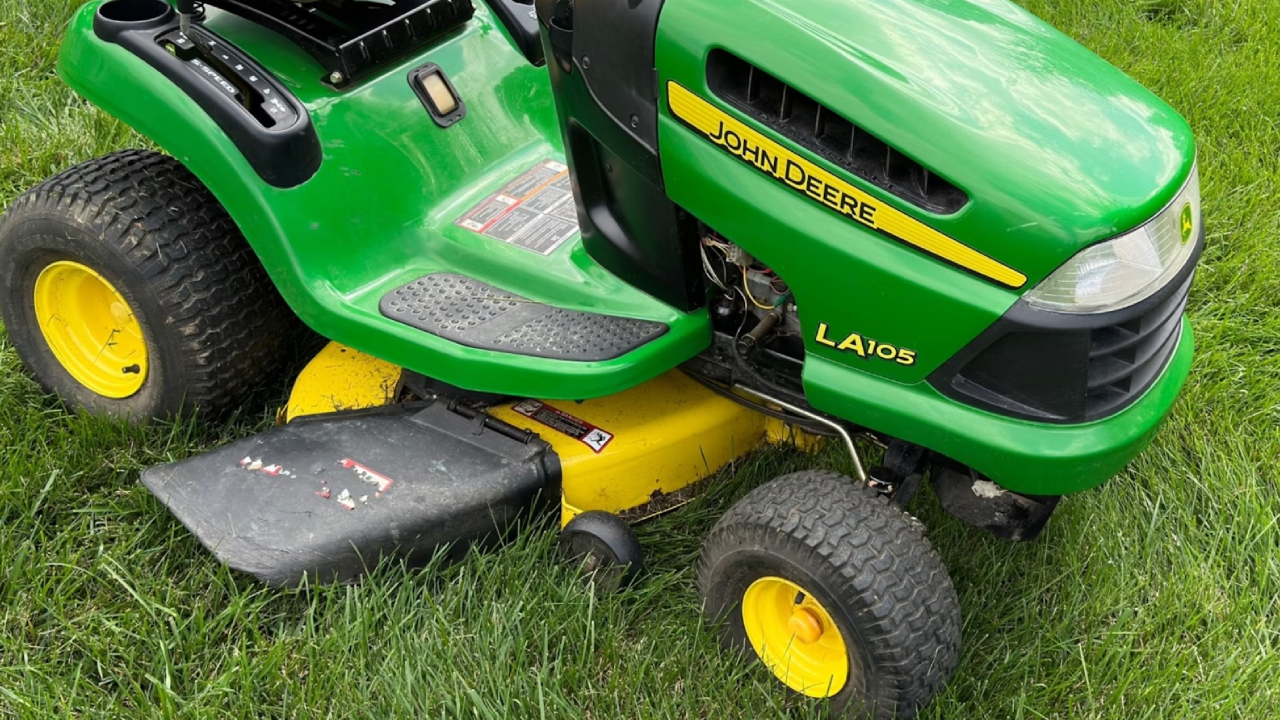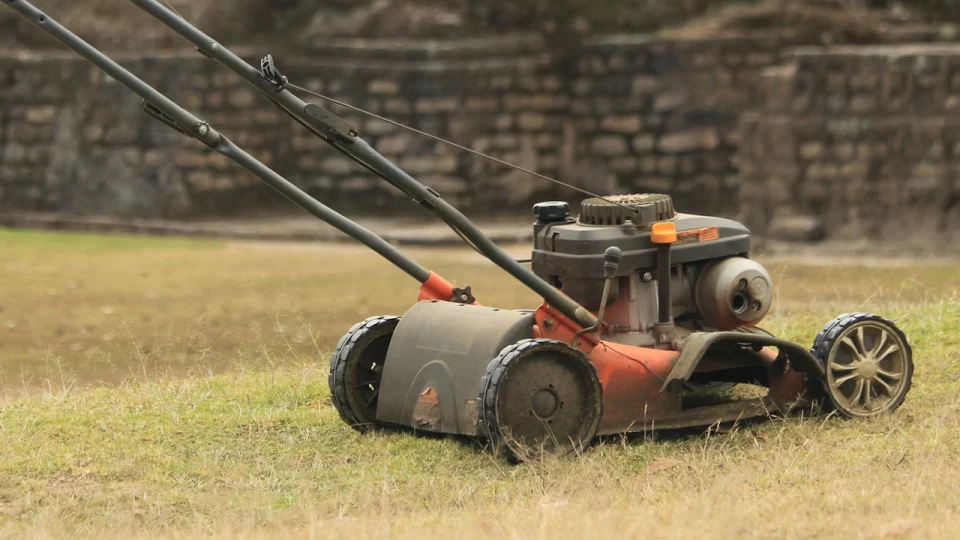Maintaining a small yard can be both a rewarding and challenging task, especially when it comes to choosing the right lawn mower. One of the most common debates homeowners face is deciding between gas and electric lawn mowers. Each type has its own set of advantages and disadvantages, which can significantly impact your lawn care experience, particularly in a smaller space.
In this comprehensive guide, we’ll explore the various factors to consider when choosing between gas and electric lawn mowers for small yards.
From power and performance to environmental impact and long-term costs, this article will help you make an informed decision tailored to your needs.
Table of Contents
1. Understanding the Basics
Before diving into the specifics, it’s essential to understand the fundamental differences between gas and electric lawn mowers.
- Gas Lawn Mowers: As the name suggests, these mowers are powered by gasoline. They have been the traditional choice for homeowners for many years due to their strong performance and ability to tackle large areas with ease.
- Electric Lawn Mowers: These mowers run on electricity and come in two types: corded and battery-powered. They have gained popularity in recent years, thanks to advances in technology that make them more powerful and environmentally friendly.
Now that we have the basics covered, let’s explore each factor that plays a role in determining which type of mower is best for a small yard.
2. Power and Performance

The most significant factor to consider when choosing a lawn mower is its power and performance, particularly in terms of cutting efficiency and consistency.
- Gas Lawn Mowers: Gas mowers typically offer more power than electric mowers. They can handle thicker and taller grass with ease, making them ideal for homeowners who may not mow their lawns frequently. Gas mowers also tend to perform better on uneven terrain and can cut through tougher weeds and debris without losing power. However, for small yards, the extra power may not be necessary and could be overkill.
- Electric Lawn Mowers: Modern electric mowers have come a long way in terms of performance, but they are generally less powerful than their gas counterparts. While this difference may be noticeable on larger lawns or when dealing with particularly tough grass, it’s not usually an issue for small yards. In fact, for smaller spaces with well-maintained grass, electric mowers offer more than enough power to get the job done effectively. Battery-powered mowers, however, might struggle if the grass is too long or thick, as they can lose power as the battery drains.
3. Ease of Use
The convenience of using a lawn mower is especially important for small yards, where maneuverability and quick start-up are essential. Here’s how gas and electric mowers compare in terms of ease of use:
- Gas Lawn Mowers: Gas mowers are often heavier than electric mowers, which can make them harder to maneuver, especially in tight spaces like small yards. Starting a gas mower typically requires pulling a cord, which can be difficult for some users. Additionally, they require more maintenance, such as oil changes, spark plug replacements, and air filter cleaning. If you’re someone who prefers a low-maintenance option, gas mowers may feel cumbersome.
- Electric Lawn Mowers: Electric mowers are typically lighter and more compact than gas mowers, making them easier to maneuver in tight spaces and around obstacles like trees or flower beds. Corded electric mowers can be somewhat limited by the length of the power cord, but for small yards, this is often not a significant issue. Battery-powered electric mowers are cordless, offering more flexibility and ease of movement. Another significant advantage is that electric mowers usually start with the push of a button, eliminating the need for a pull cord and making them more user-friendly for people of all ages.
4. Environmental Impact

One of the most significant factors driving the popularity of electric lawn mowers is their reduced environmental impact.
- Gas Lawn Mowers: Gasoline-powered lawn mowers emit harmful pollutants such as carbon dioxide (CO2) and contribute to air pollution. According to the Environmental Protection Agency (EPA), gas lawn mowers contribute to about 5% of the nation’s air pollution. Over the course of a year, a typical gas lawn mower can emit as much pollution as a car driven for hundreds of miles. For environmentally-conscious homeowners, this can be a significant drawback. Additionally, gas mowers are noisy, contributing to noise pollution in residential areas.
- Electric Lawn Mowers: Electric mowers are far more eco-friendly. Since they do not rely on burning fuel, they produce zero emissions during use, making them a much greener option. If you’re looking to reduce your carbon footprint, an electric mower is the clear winner. Furthermore, electric mowers are much quieter, producing far less noise pollution, which can be a major advantage for homeowners living in densely populated areas or neighborhoods with noise restrictions.
5. Cost
The initial and long-term costs associated with gas and electric lawn mowers can vary significantly, so it’s important to consider your budget when making a decision.
- Gas Lawn Mowers: Generally, gas mowers tend to have a lower initial cost compared to electric mowers, especially the more powerful models. However, gas mowers come with additional long-term costs, such as fuel, oil, and maintenance. Over time, these costs can add up, making gas mowers more expensive to operate. Additionally, if any major components break down, repairs can be costly.
- Electric Lawn Mowers: Electric mowers typically have a higher upfront cost, particularly battery-powered models. However, the long-term savings can be substantial, as electric mowers require less maintenance and have no fuel costs. While battery replacements may be necessary after a few years, they are generally less expensive than the ongoing maintenance required for gas mowers. In the long run, electric mowers are often more cost-effective, especially for small yards where the limited battery life is less of an issue.
6. Maintenance
Another key consideration is the level of maintenance required to keep your lawn mower in good working condition.
- Gas Lawn Mowers: Gas mowers require more maintenance than electric models. You’ll need to regularly change the oil, replace the spark plugs, and clean or replace the air filter. In addition, the carburetor may need occasional cleaning, and the fuel system can develop issues if the mower is not used frequently. Over time, these maintenance tasks can become time-consuming and costly.
- Electric Lawn Mowers: Electric mowers require very little maintenance. There’s no need to worry about oil changes, spark plugs, or air filters. For corded models, the main maintenance concern is keeping the cord in good condition. For battery-powered models, you’ll need to ensure the battery is charged and stored properly to maximize its lifespan. Overall, electric mowers are much easier to maintain, making them a convenient choice for homeowners who prefer a hassle-free experience.
7. Run Time and Refueling
The size of your yard and the amount of time you spend mowing are critical factors in determining the best type of mower for you.
- Gas Lawn Mowers: Gas mowers can run for extended periods as long as you have enough fuel. When the fuel runs out, it’s easy to refill the tank and continue mowing. For small yards, the fuel tank size is typically not a concern, as you’re unlikely to run out of gas before the job is done.
- Electric Lawn Mowers: Corded electric mowers have an unlimited run time as long as they are plugged in, but their range is limited by the length of the power cord. For small yards, this is often not an issue, but it’s something to consider if you have any hard-to-reach areas. Battery-powered electric mowers, on the other hand, are limited by the battery’s charge. Most modern battery-powered mowers can run for 30-60 minutes on a single charge, which is usually sufficient for small yards. However, if you forget to charge the battery or if the job takes longer than expected, you may have to wait for the battery to recharge before finishing.
8. Durability and Longevity
The durability and lifespan of your lawn mower are important factors that can impact your overall satisfaction and long-term costs.
- Gas Lawn Mowers: Gas mowers are known for their durability and can last for many years with proper maintenance. They are built to handle tough mowing conditions and can withstand more wear and tear than electric mowers. However, neglecting regular maintenance can significantly reduce their lifespan. For small yards, the durability of a gas mower might be more than what is necessary, and the ongoing maintenance required to keep it in top shape could become burdensome over time.
- Electric Lawn Mowers: Electric mowers, particularly corded models, tend to have a longer lifespan than battery-powered ones, primarily because batteries degrade over time and need replacement. That said, electric mowers generally require less maintenance, which can help extend their lifespan. For small yards with regular upkeep, an electric mower can last many years without significant issues. While battery replacements are an eventual cost, modern lithium-ion batteries can last several years before they need to be replaced.
9. Convenience and Storage
Space is often limited in homes with small yards, so the convenience of storing your lawn mower is another important consideration.
- Gas Lawn Mowers: Gas mowers tend to be bulkier and heavier, making them more challenging to store, especially if you have limited garage or shed space. They also require proper storage conditions, such as being kept in a well-ventilated area to prevent gas fumes from building up. If you have limited storage space, a gas mower may not be the most convenient option.
- Electric Lawn Mowers: Electric mowers, especially battery-powered models, are generally more compact and lighter than gas mowers, making them easier to store in small spaces. Many electric mowers have foldable handles, which further reduces their storage footprint. Additionally, there are no concerns about gas fumes, so they can be safely stored indoors if needed. This makes electric mowers a more practical choice for homeowners with limited storage space.
